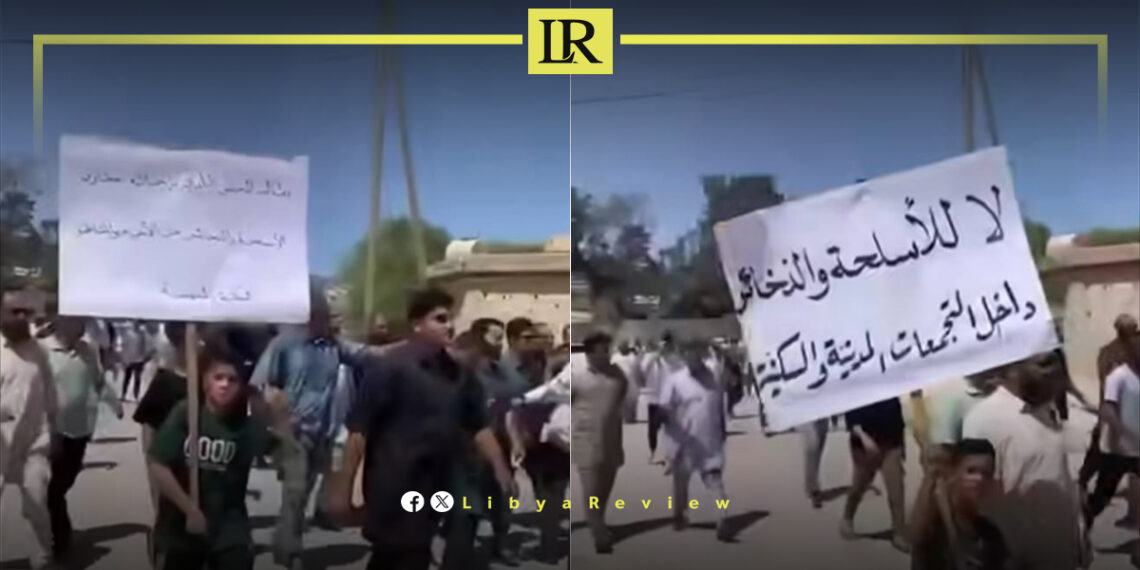Residents of Al-Skeirat in Misrata staged demonstrations on Monday demanding the removal of weapons and ammunition depots from their community following a massive explosion that shook the area overnight.
The protest came after a fire ripped through a munitions stockpile late Sunday, causing a series of violent explosions that sent rockets and shells raining down on nearby neighborhoods. The blast created scenes of panic as families rushed out of their homes to escape falling debris, with some missiles striking roads and homes and leaving significant damage.
Protesters carried banners calling for an end to the storage of heavy weaponry in residential districts, describing the depots as “time bombs” threatening civilians. They urged authorities to act immediately by transferring such stockpiles to remote, secure facilities far from population centers. Residents stressed that the danger is not new, with repeated incidents across Libya exposing the risks of militarized neighborhoods.
The Ambulance and Emergency Service confirmed that 16 people were injured in the Al-Skeirat blast, most with minor wounds. Six were treated at Misrata Central Hospital, while the others received emergency care on-site. The explosion also temporarily disrupted electricity and communications in parts of the city.
On Monday, the Criminal Investigation Department announced it had recovered remnants from the explosion, including rockets and artillery shells scattered across the area. Bomb disposal units were deployed to defuse unexploded ordnance and secure the site.
The incident has reignited national debate over the widespread practice of storing weapons in urban areas. Similar explosions have occurred in Tripoli, Tajoura, Zliten, and Zuwara in recent years, each time sparking public anger but little concrete action from authorities. Residents argue that these repeated disasters highlight the absence of effective security governance and the continued influence of armed groups operating outside state control.
Protesters warned that unless decisive steps are taken, civilians will remain at constant risk of sudden catastrophe. “We cannot live every day wondering if our homes will be destroyed by the weapons next door,” one demonstrator said.
The Al-Skeirat explosion also comes at a time of mounting security tensions in western Libya, with reports of military mobilizations around Tripoli fueling fears of renewed conflict.


